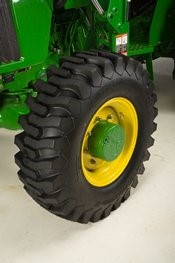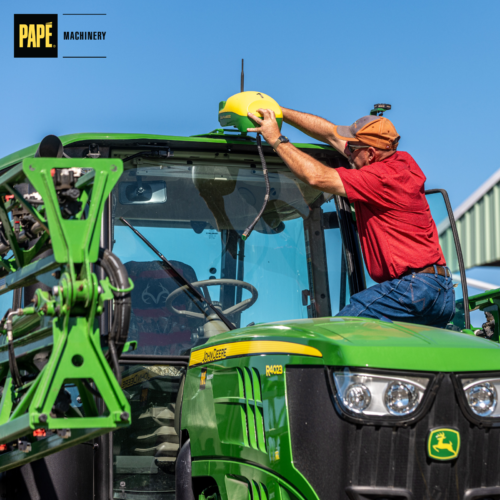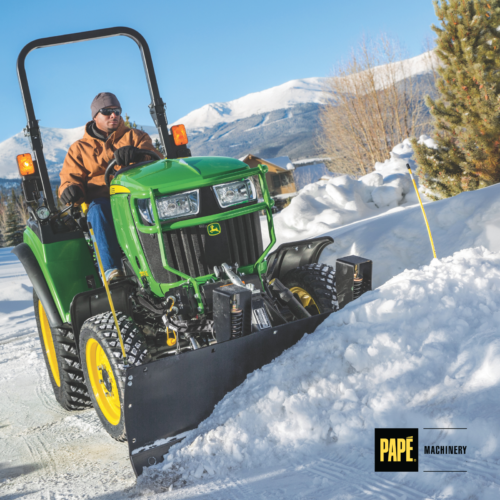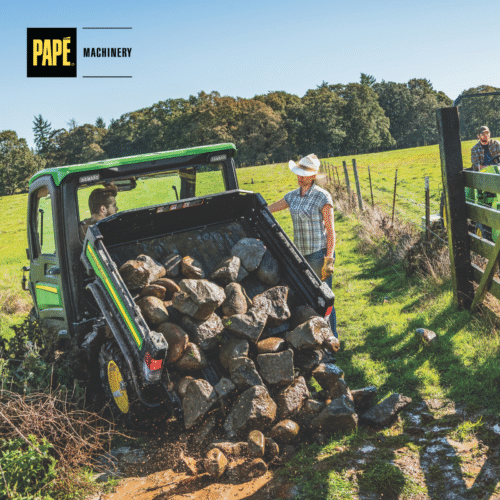Whether you are buying a new tractor
or just replacing the tires on your current model, it’s important to choose the right tires for your intended application, terrain, and soil conditions. In this guide to tractor tires, we’ll cover the three most common varieties used today, which conditions each type is best suited to, and where you can buy these tires.
Tractor Tire Types
Most John Deere tractors can be fitted with any of the three tread options, but that doesn’t mean just any tire will do. It’s important to consider your overall property conditions and the attachments
you’ll be using before committing to a purchase, as each option will be optimal for differing use cases.

R1 Tires
R1 tires, or agriculture tires, offer deep treads for traction in the toughest field conditions. Whether you are working in mud, loose dirt, or snow, properly inflated R1 tires will provide the traction you need for just about any chore.

R3 Tires
R3 tires, also known as turf tires, are designed to minimize turf damage with their shallower tread depth. These tires are often a good choice for compact tractors that will primarily be used for mowing or when working around your lawn or garden.

R4 Tires
R4 tires are most commonly used in roadwork or hard ground applications. They have a tread depth that’s about halfway between the depth on R1 and R3 tires. These tires are usually made of a more wear-resistant composite that holds up well on asphalt and gravel, making it the ideal choice when you find yourself working between heavier duty and turf projects.
Choosing the Right Tractor Tires
At Papé Machinery Ag & Turf, our parts team typically ask the following questions before making a tractor tire recommendation:
- Do you have a lot of hills?
- Will you mostly be working on grass?
- Do you intend to use your tractor for pavement work?
- What attachments will you be using most often?
Being equipped with answers to these questions will assure a quick diagnosis by the parts team to tell which tractor tire is right for you. If your unsure of how you’ll be using your equipment or don’t have a simple answer due to diverse property conditions, then it’s best to consult with an equipment expert to help you identify the best option. Be sure to give us a call or stop by your nearest location
to speak with a parts specialist if you’re unsure. They’ll help you become a tire tread expert in no time.
Where to Buy Tractor Tires
Once you’ve decided on the right type of tractor tire, it’s time to call around to your local tire shops to find the best pricing. Many stores carry these types of tires, including tire shops, Ag supply stores, and even big box stores like Walmart. If you’d prefer to buy used, you can always check out our tractor tire inventory online.
Looking for more info on John Deere Tractor Tires? Check out our episode of The Toolkit, where our equipment expert, Sawyer Meek, runs through the tire options we mentioned and explains specific property matches and use-cases for each.







